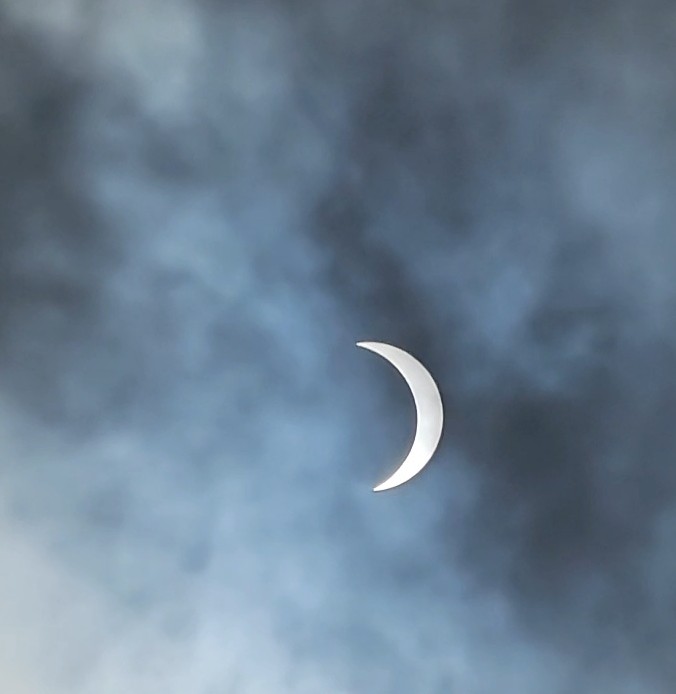D/A and A/D | Digital Show and Tell (Monty Montgomery @ xiph.org)
This is a video about the digital vs analog audio quality debate. It explains, with examples, why analog audio within the accepted limits of human hearing (20 Hz to 20 kHz) can be reproduced with perfect fidelity using a 44.1 kHz 16 Bit digital signal.
There is no audible difference between an analog and digital audio signal.
Among other things, xiph.org maintains the .flac and .ogg vorbis audio formats - they know a little about audio encoding and reproduction.
“they’re part of BIG DIGITAL!”
It’s actually because of the limitations of analog media that analog audio might sound better. For example, you can’t compress the signal as much when mastering for vinyl instead of digital, since you risk the needle jumping between adjacent grooves. As a result, the vinyl version of a song can sound more dynamic.
It’s the opposite, no? Vinyl can’t handle the explosive dynamics common in modern music (especially electronic) due to the skipping issue, so any sharp peaks like that need to be compressed to make the overall mix more mellow
I did a bit of reading and it seems you’re right, but it isn’t quite as simple. You have to compress more, since you have less potential dynamic range on vinyl (so in practice a digital recording can be more dynamic than an analog one), but limiting is more problematic and an excessively limited recording has to be cut quieter or you’ll encounter issues. From what I read, these issues seem to be mainly unintended distortion and, again, needle skipping.
But your explanation makes sense and I’m not quite sure why excessive limiting would lead to skipping.
So, a limiter and a compressor are actually the same thing! Just used in different contexts. You can think of a limiter as being a compressor set to extreme values, so that you can guarantee that at no point will the volume go beyond a certain threshold.
So let’s think of like, a guitar string being plucked. It starts out loud and percussive, you get some string noise as well. Then the actual tone is played, starts as loud as it will ever get, then gradually reduces in volume over time naturally as the energy in the string is lost.
Suppose we set the limiter to be a very low threshold, just above the quiet ringing you would hear after like 15 seconds of letting the guitar string resonate. Essentially the limiter will aggressively turn down the volume during the whole beginning, then ease off as the tone naturally quiets.
The final result is that you’ve transformed a sound wave that started out with a large amplitude that gradually got smaller, into one that has a generally uniform amplitude throughout its entire duration! Then, as with all compressors, since you’ve actually reduced the amplitude of the wave, you can now turn the volume waaaaaaay up without clipping out. So now, stuff that used to be quiet is now just as loud as the loudest parts of your recording. A rustling leaf would be played at the same volume as a gunshot.
The issue this creates with vinyl is that carving such an extreme waveform into a physical medium results in a path the needle simply can’t follow accurately.
Imagine an old wooden roller coaster, one in which the cart isn’t attached to the track other than by gravity holding it there. If you included a sudden massive drop when the cart was moving at high speed, it wouldn’t follow the track, it would actually fly off the track briefly as it can only accelerate downward as fast as gravity will allow.
If the needle is the cart, and the carving in the vinyl is the track, these moments of air time will create audible distortion. It’s actually a bit more precarious than that, even, as vinyls actually use not only the up and down components of gravity, but left and right as well. The two tracks superimposed are what allows us to create a stereo image (having distinct sounds in the left and right speakers).
There’s also a ton of other things that can cause distortion, but I don’t want to ramble on forever! The basic rule of thumb is that a vinyl master essentially just has less low end. From what I understand, this is the root of why many people prefer “the sound” of vinyl, they simply prefer a slightly more mid-dominant mix
digital signals aren’t audible
Just don’t mention the Nyquist-Shannon sampling theorem. Last time I did that I barely made it out of the record shop alive
Physics? In my record store? GET OUT!
“Noise floor? Don’t be silly, it’s analogue, there is no noise floor!”
One of the sillier reasons I still purchase vinyls is that it feels like I’m getting a cool poster along with the music
I buy CDs for the booklets (and am massively disappointed if there is none)
It’s like a large trading card that you can use to play music
For me it is less about the sound and more about playing music in a way that is devoid of any real software or internet connection.
I don’t have to worry about ads, updates, connections, etc. Just other analog things like a bent needle or dust on the record.
It’s like camping. No I don’t like sleeping on the ground specifically but sometimes it is worth doing so to be somewhere else: disconnected.
Or you could just buy a CD/DVD player or audio file player and have the same ad-free experience but with modern signal quality and for a fraction of the cost. Heck a saved library on a laptop running some kind of audio player like WinAMP and disconnected from the internet would also give you that experience. Could even use Windows XP or a classic Linux for that nostalgia since it wouldn’t be internet connected.
Yeah, or have a meticulously organized multi-terabyte flac collection in your NAS you stream your music from…
I also have that set-up. Which is likely why there is something to enjoy from a purely analog sound system: I enjoy how the technology works, which isn’t necessarily a sound quality experience.
I’m with ya. I watched Arachnophobia on VHS the other day, just because.
It looked like shit, sounded like shit, but the VHS nostalgia was worth it.
It also made appreciate the hell out of Dune 2 in 4K… sometimes old tech reminds me how good current tech is.
Just download SoulSeek and download your songs in .flac. You literally only have to do it once and keep them forever.
I think you are replying to the wrong guy here, but thanks for the advice anyway. Maybe I will replace my Spotify with it.
Oh you’re right, sorry. lol
What you are looking for here is something from the OG iPod line. There are some guides out there on how to build something similar with a raspberry pi.
Z U N E
I am probably not the right person to reply to. I am quite happy with Spotify, but for people like this guy this is the way.
I really like the comparison of analog media with camping!
Since owning a CD player i use my CDs more now than i did in 2010. Unfortunately Discogs shipping fees mean i can’t buy most of the things i want
CDs are digital media, not analog. I actually mentioned them in a reply to this guy, that they are both cheaper and better audio quality because they are digital.
You are technically correct. I should have said physical media
I highly recommend MusicBee for windows. It works well out of the box and has tools to organize your library for you and do other tasks. It’s all local and free. (You need to bring your own music files)
I got 20+ years of harddrives on my local server. I use an old rig in the main room with fubar2000 and milkdrop plugin, all hard wired on LAN. It works just fine for when I am not in my office.
But separately I have my dad’s old phonograph and some records for when I’m working in the garage. Unfortunately that setup suffers on the speaker end more than anything. Poor things been through a dozen moves across cities and states.
To think that analog mediums are superior to digital requires a fundamental misunderstanding of signals and the human range of hearing that you can only get from
placebo enthusiasts“audiophiles”(I am by no means shitting on actual audiophiles btw. I consider myself an amateur audiophile.)
Edit: should also clarify I’m not shitting on people who enjoy records. I’m shitting on people who strictly think analog is better than digital.
It used to be in the 80’s when D/A converters were shit compared to the great 70’s and 80’s vinyl and tape players. Or in the 90’s and 00’s when most of the CDs were mastered loud and ugly. Nowadays it is what you say: digital really sounds better…
How come they’re in quotes but you’re better than them
Removed by mod
A pure analog recording can be superior to digital recordings. But those are so rare these days, we don’t have a good comparison.
There’s things like “bass bleed” and cross talk that made analog so interesting to listen to.
As long as the original recording is 48kHz or higher, digital recordings are awesome. We might not be able to hear beyond the 20Hz - 20kHz, you can most certainly feel it. Especially in the lower end.
As long as the original recording is 48kHz or higher, digital recordings are awesome. We might not be able to hear beyond the 20Hz - 20kHz, you can most certainly feel it.
Someone hasn’t heard of the Nyquist theorem :)
Yes. Yes I have. It’s why I state 48kHz or higher due to the halving effect. 44.1kHz will only get you to 22kHz and 18Hz. Not a whole different than what ours can hear. 44.1kHz was the standard for CDs due to size limitations but we’re well beyond that now.
If you grew up hearing the crackle, then to have it removed is pretty jarring. Some stuff feels to me like it benefits from it because it’s kinda old-timey stuff anyway, and it sets the mood better - like the Beatles or Frank Sinatra. But it’s not an audiophile thing in that case, just vibes.
Yeah, it’s one thing to like that slight amount of noise, and another to say it’s higher quality.
I agree wholeheartedly
deleted by creator
Removed by mod
Define “superior”.
I like putting a record on for more intangible benefits. It’s a bit of a ritual to set everything up just right and get a nice sound out of it. Being so deliberate makes it something of an event where you’re saying “I am going to spend the evening listening to music”.
Yep and I like to read the lyrics and any additional content or art that comes with the album while I listen to it. I also like that it forces me to not skip any songs, as when I stream stuff I tend to skip even some good songs in order to get to my favorites faster. The sound quality isn’t really the point for me with vinyl, it’s more about immersing myself with the album and enjoying it like a movie.
I do this with my CDs, my ritual is mostly about setting up the ambience in the room though.
I’d love to have the space for a record player, but for now my vinyls are decoration.
I will happily pay the absurd modern prices for vinyl if I know for a fact there is a digital download card inside. Record companies need to put a fucking sticker on albums to let us know this because not getting one feels like an actual scam.
Also pretty much everything is digitally mastered anyway so if anyone judges you ask them if they own ANY analog albums
Wasn’t there even an “all analog” label in the US that claimed to use a fully analog pipeline in their process. People were saying it sounds so much better than the digital garbage we have, until somebody found out they were secretly using digital sources in their process and now the company got sued.
For all the recording nerds out there I highly recommend the book “Perfecting Sound Forever” by Greg Milner, which offers really good insights from both sides of the analog/digital debacle.
Some have something like a sticker saying there’s a digital download on them.
If there’s not… I put on my pirate hat
to be fair I don’t buy a lot, mostly because of the price, but I’ve never seen a digital card advertised. it’s always just been a nice surprise in something I was buying anyway. so I’m saying I’d buy more if it was a standard practice or advertised better.
I think Bandcamp gives you this for all vinyl purchases.
I consume my music exclussively through wax cylinders.
Purist
Most musical instruments are analog. Digitizing them is inherently lossy. I mean, it doesn’t matter, you can get both digital and analog recordings that are orders of magnitude more accurate than human hearing, but claiming that analog is more inherently lossy than digital is just factually incorrect, unless the music is produced purely digitally. Including no human voices, because those are analog.
Analog is inherently lossy due to the materials and playback method. Vinyl records sound different when they are dusty.
Digital is inherently lossless because the Nyquist–Shannon sampling theorem guarantees that, given a sufficiently high sample rate, all information from the original signal is preserved.
Your speakers are analog. They sound different when they are dusty. Your ears are analog. Things sound different when you have dirty ears. Nyquist-Shannon sampling theorem only applies when there are no frequencies outside of the sample range, which doesn’t happen in real life. None of this matters, because like I said it’s trivial to have orders of magnitude more accuracy than you need. Digital is just way cheaper to copy accurately, so that’s why it has become dominant, and that’s fine, but the idea that it’s inherently more representative of reality is just gibberish.
It is inherently more representative of reality. Measurably so. Vinyl doesn’t and cannot have the same dynamic range as digital.
You know that vinyl is not the only way of recording analog information, right?
There is also cassette tapes, reels, wax cylinders, laser discs… Analog supports degrade over time. Digital files do not.
True, but analog cylinders are going to be the ones people after the world burns can find and still listen. I wouldn’t count any old CDs play at that point anymore.
Like analog degrades, digital just stops playing.
Digital storage devices have way shorter lifespans than analog ones. Digital information can be more reliably copied, but we are constantly losing massive amounts of information to digital storage loses when it falls out of public consciousness. If no one is actively copying it, it is doomed in the digital age. We still have analog storage that’s good enough to be useful from thousands of years ago.
Digital files have checksums. You literally know when something has changed and you lost information. And then you have error-correction on top.
The analog storage you are referring to from thousands of years ago has degraded substantially since its creation. Yes it’s still useful but I wouldn’t use that as evidence it’s a better medium. Case in point: texts (a digital storage form) from thousands of years ago can be retransacribed to be exact copies of the original (with respect to the knowledge contained within of course) whereas paintings from the Renaissance have changed dramatically due to aging and can never be returned to their original form since the needed data is lost.
Vinyl sounds different per use, since it wears out.
But isn’t live music analogue?
Digitizing is only lossy once*. Analog is lossy every time you copy it and degrades over time.
*Assuming you use a lossless digital format
Not just any time it’s copied or generally over time, but each playback can degrade the quality. Record pins erode the channels, magnetic heads affect the strength of the magnetic field they read.
Reads, copies, and time don’t (necessarily) degrade digital media, even with lossy compression (time can, but any time it’s copied, it resets the clock to as good as the media can give; analog doesn’t get that reset). Lossy compression only degrades it on conversion and there’s a bunch of control over the shape of that degradation (with the intent of it not being detectable to our ears, though it obviously also depends on the bandwidth available).
That is an actual fair criticism. Well, part of it. All of our current digital media technology actually degrades over time faster than analog ones, but they’re so easy to copy that it’s not really a problem for things that people like to make copies of. It is a problem for archiving though. I wasn’t trying to argue that digital has no advantages. Just that it’s not magically better in every way.
But if you lose the information how to turn those bits into music, it is gone forever. That Edison cylinder is pretty easy to play compared to that opus or mp3 file you found from the grave 40000 years from now.
You can sit here and have an argument about Nyquist-Shannon, but it isn’t relevant for lots of music made in the past 40 years since it was made or recorded digitally.
If your work was made with a DAW there’s no point to analog.
I’ve got a record from a smaller artist somewhere that I swear has fucking mp3 compression in it, because they don’t know how to export their shit like an adult.
The only meaningful difference between them is that digital is cheaper to copy. Your ears are analog though, so everything you’ve ever heard in your entire life is 100% pure analog, and I explicitly said in the post you seem to think that you’re disagreeing with that they’re both orders of magnitude better than they need to be.
Nearly all music is recorded digitally, anyway, and has been for a while.
Sure, and there’s nothing wrong with that. They’re both plenty good enough, and digital is cheaper to copy accurately. It’s also actually possible to make a copy of a copy of a copy digitally and have it still be accurate. I wasn’t attempting to say we shouldn’t use digital, or that it has no advantages, just that the argument in the original post makes no sense.
But there’s a difference between converting a JPEG to a PNG and re-compressing a JPEG as another JPEG.
True. I wasn’t trying to argue that there are no advantages to digital, or even that we should go back to analog. Just that the argument in the post doesn’t make sense.
Pristine? I bass boost the shit out of everything.
We only accept low frequencies in this household 🗿
Hearing discernible sounds < boxing with lungs wrapped around one’s fists.
I have a reasonably expensive audiophile set up (nothing fancy by true audiophile standards mind you) but I still basically just listen to all my music through a pair of Skullcandy Crushers lol
What’re you running now? I’ve been using Sony MX’s for a long time now, but I love the idea of the Crushers for those times I want to feel like the walls are made of subwoofers, and they seem inexpensive enough for a decent pair of secondary headphones.
I’ve got a rather large collection tbh, my wired setup consists of a FiiO USB DAC (I can’t remember which model) and a pair of Sennheiser HD600s. I’ve also got the absolute dirtiest Skullcandy buds, cheap as chips and so noisy lol but they’re good enough when I’m cycling.
For wireless, I’ve either got my Sennheiser PXC550 IIs or the Crushers (rainbow pride version duh), but occasionally I’ll just use a set of shokz bone conduction buds if I’m going to be out with people and want some background music.
There’s plenty of others I don’t use very often, for one reason or another.
Well, now that I know they make pride Crushers, you’ve definitely sold me lol
It was a limited run last year, not sure if they’ll ever do them again unfortunately but they are very pretty.
miku miku beeeeaaaam
deleted by creator
I’m not saying you’re wrong, but there are a good few digital drawing applications that have paper backgrounds and very convincing crayon/marker/pen etc tools… I draw my d&d character sketches with Fresh Paint on a surface pro with the stylus and everyone thinks they’re colored pencil drawings
deleted by creator
Just so long as you acknowledge the fact that 99% of digital audio you listen to is not meticulously optimized the point that there’s a discernable difference between it and analog sound.
Yes, but due to lossy compression. Not because of any limitations of digital audio.
Probably due to crappy editing and laziness, not any technical shortfall…
I mean, the analog audio you listen to is very likely made in the same way, and then turned into a physical record.
It is true that a lot of music is recorded digitally and then put on vinyl. I’m in a band and we did this exact thing for our latest release. The mastering engineer did a special master specifically for vinyl that is different than the digital release master.
It is possible to do the recording process analog, but it is more expensive and time consuming.
There’s also a hybrid option that some elect to do, where they record to tape (analog) and then edit it digitally.
Dont tell them, but I mixed in protools before outputting to a conversion box to get it on the vinyl
But vinyl is still inherently lossy, so the argument still applies.
Exactly it makes both camps mad.
I just like owning the spirally squiggly music line. Hehehe it spins and sound comes out



















